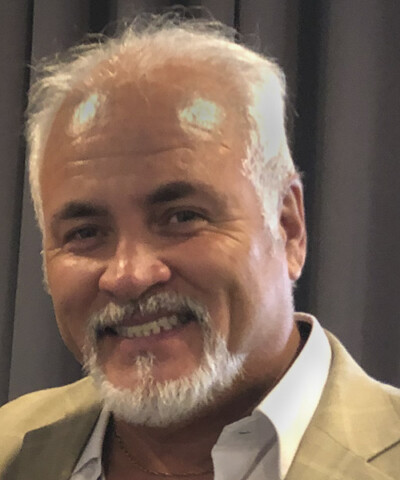Our Volunteers

Chief David Peter-Paul
Meet Chief David Peter-Paul, a member of our Board of Directors
Though born in Bathurst, New Brunswick, Peter-Paul grew up in New Jersey, just a few minutes south of New York City. After that upbringing, he describes moving back to Bathurst at age 15 as being like moving to the ‘wild, wild west.’
“Or the ‘wild, wild east’ anyway,” Peter-Paul clarifies with a laugh. “After moving to Canada, we spent a lot of time on the Nepisiguit River, trying to chase down salmon. I learned how to paddle and pole a canoe, how to fish both salmon and trout, and even took up snorkeling to find and follow them underwater. As a result, we became very familiar with the river, it’s many pools and tributaries.”
With that came an awareness of the crucial importance of protecting these watersheds and the wildlife that use them as habitat. He became particularly concerned about the potential impacts that upriver mining operations could have on the Nepisiguit River system.
“An awareness began to grow inside of me around the possibility of losing something that was always and forever there, something my father, grandfather, and those before them knew like the back of their hands,” said Peter-Paul.
He earned a Bachelor of Arts from the University of New Brunswick before working in a variety of capacities for First Nation communities in the Atlantic region. He worked for the Pabineau First Nation as a Community Development Worker and in 1984, at the age of 22, was elected as a Band Councillor and worked as a Band Manager for the next four years. After pursuing a degree at UNB, he worked as Post-Secondary Education Counselor/Director for the North Shore Micmac District Council.
In 2004, he was elected to serve as chief of the Pabineau First Nation. At that time, the community relied entirely on government support to manage its various programs, which gave the community little capacity to advance or thrive. Drawing from his business studies at UNB, Chief Peter-Paul helped the community establish several successful businesses, through which the Pabineau First Nation now generates most of their $13 million operating budget. He also oversaw a variety of community improvements, such as a wind farm, a community health center, and an upgraded water system, among many other accomplishments.
Chief Peter-Paul says that he was excited when the opportunity arose to join the Foundation for Conservation of Atlantic Salmon’s board of directors – in fact, he wishes that he had gotten involved earlier. Considering the ongoing environmental issues associated with industrial development and the growing challenges of global climate change, he says it was integral to him in his role as Chief to become more involved in conservation.
“As we survey the past and present-day condition of fish and fish habitat throughout Atlantic Canada, our bays, harbours, rivers, brooks and streams, it is important that we all come to an understanding of what has happened here. It is important to commit our minds and hands to the work of ‘conservation’ and explore applications that contribute to the preservation of eco-systems that serve as habitat to fish and wildlife. Whether we realize it or not, the future of our planet and all of its inhabitants will ultimately depend upon the success of these important and ongoing conservation efforts. I am proud of the FCAS team’s ongoing efforts, to not only understand the science, but to actively pursue projects focused on the preservation and restoration of salmon habitat and its day-by-day engagement in the overall conservation of Atlantic Salmon.”
Since 2020, Peter-Paul has been enjoying his retirement and now spends much of his time in the great outdoors, gardening, hunting, fishing, gathering, raising family food and taking good care of his aging father, former Chief Benjamin Peter-Paul Sr.
